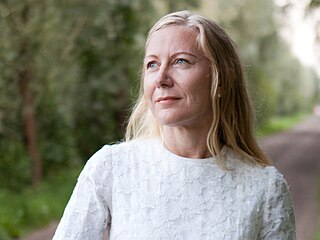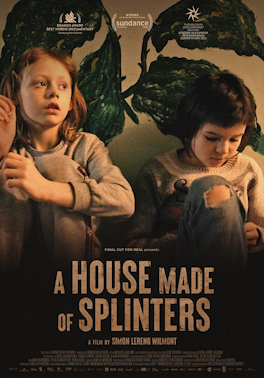Related Research Articles
A national human rights institution (NHRI) is an independent state-based institution with the responsibility to broadly protect and promote human rights in a given country. The growth of such bodies has been encouraged by the Office of the United Nations High Commissioner for Human Rights (OHCHR), which has provided advisory and support services, and facilitated access for NHRIs to the United Nations (UN) treaty bodies and other committees. There are over one hundred such institutions, about two-thirds assessed by peer review as compliant with the United Nations standards set out in the Paris Principles. Compliance with the Principles is the basis for accreditation at the UN, which, uniquely for NHRIs, is not conducted directly by a UN body but by a sub-committee of the Global Alliance of National Human Rights Institutions (GANHRI) called the Sub-Committee on Accreditation. The secretariat to the review process is provided by the National Institutions and Regional Mechanisms Section of the OHCHR.
CPH:DOX, also known as Copenhagen International Documentary Film Festival, is a Danish film festival focused on documentary films, held annually in Copenhagen, Denmark. Since 2008 has been run by Copenhagen Film Festivals, which also managed the now-defunct CPH PIX festival.
The Human Rights Commission is the national human rights institution (NHRI) for New Zealand. It operates as an independent Crown entity, and is independent from direction by the Cabinet.
The Danish Film Institute is the national Danish agency responsible for supporting and encouraging film and cinema culture, and for conserving these in the national interest. It is the successor organisation to the Danish Film Foundation. Also known as Filmhuset, it is located in Gothersgade in central Copenhagen. Facilities directed at the general public include a library and Cinemateket, Denmark's national film museum.
The Scottish Human Rights Commission (SHRC) is the national human rights institution for Scotland. It was established by the Scottish Commission for Human Rights Act and started its work in 2008. The Commission is independent of the Scottish and UK Government, and of Parliament.
Malek Shafi’i is a film director, producer, festival organiser, and human rights activist from Afghanistan.
CPH PIX was a film festival that takes place annually in Copenhagen, Denmark. Created when the Copenhagen International Film Festival and the NatFilm Festival were merged in 2008, the festival ran from 2009 until 2021. It was run by Copenhagen Film Festivals, which also manages the documentary festival CPH:DOX. CPH PIX incorporated Buster Film Festival for Children and Youth between 2016 and 2018.
The Asia Pacific Forum (APF) is one of four regional networks of national human rights institutions (NHRIs) within the International Co-ordinating Committee of NHRIs. The APF formerly accredited NHRIs for compliance with the United Nations' Paris Principles, but now acknowledges the accreditation decisions of an ICC sub-committee on which the APF has one of the four (regional) seats.
The ICC Working Group on Business and Human Rights is a thematic Working Group of the International Coordinating Committee of National Institutions for the Promotion and Protection of Human Rights (ICC). The Working Group was established by the ICC Bureau in March 2009 and held its first meeting in Copenhagen in August 2009. The Working Group includes 2 members from each of the 4 ICC Regions. The Danish Institute for Human Rights (DIHR) currently holds the Chair of the Working Group.

Final Cut for Real ApS is a film production company based in Copenhagen, Denmark specializing in documentaries for the international market. The two Oscar-nominated groundbreaking documentaries The Act of Killing (2012) and The Look of Silence (2014) helped establish the company as a recognized provider of independent creative documentaries on the international stage. The recent years, Final Cut for Real has also expanded to fiction films and virtual reality. In 2019 Final Cut for Real Norway was established.

The Look of Silence is a 2014 internationally co-produced documentary film directed by Joshua Oppenheimer about the Indonesian mass killings of 1965–66. The film is a companion piece to his 2012 documentary The Act of Killing. Executive producers were Werner Herzog, Errol Morris, and Andre Singer. It was nominated for the Academy Award for Best Documentary Feature at the 88th Academy Awards.

Jessica Maria Nettelbladt is a Swedish director and documentary filmmaker, specializing in personal interviews.
The European Network of National Human Rights Institutions (ENNHRI) is a membership international not-for-profit association (AISBL) under Belgian law. In 2013 it established its Permanent Secretariat in Brussels bringing together National Human Rights Institutions (NHRIs) from across the wider European region. Formerly known as European Group of National Human Rights Institutions, ENNHRI has been actively working in the field of promotion and protection of human rights in wider Europe for 15 years. ENNHRI essentially assists in the establishment and accreditation of European NHRIs, coordinates the exchange of information and best practices among its members, facilitates capacity building and training, engages with international and regional mechanisms for protection and promotion of human right and intervenes on legal and policy developments in Europe.

Dreaming of Denmark is a documentary film by director Michael Graversen that investigates what happens to one of the many unaccompanied minor refugees who disappear in Europe. The film was released at the peak of the refugee crisis in Europe in 2015/16.
Michael Graversen is a Danish documentary filmmaker. He graduated from the National Film and Television School in England and directs documentaries often of an existential or socially-relevant character. His work has won awards and been selected for festivals including IDFA and CPH:DOX.

Mohammed Ali Naqvi is a Pakistani filmmaker based in New York City. He is known for documentaries which shed light on the socio political conditions of Pakistan, and feature strong characters on personal journeys of self-discovery. Notable films include Insha’Allah Democracy (2017), Among the Believers (2015), Shame (2007), and Terror’s Children (2003).

The Men's Room is a 2018 Norwegian documentary film written and directed by Peter Sommer and Jo Vemund Svendson. It concerns 25 Norwegian men in a men's choir rehearsing for their biggest event ever: warming up for Black Sabbath in front of 10,000 people. However, backstage issues arise as Ivar, the conductor, is terminally ill and may not survive to witness the concert.

Tonje Hessen Schei is a Norwegian film director, producer and screenwriter who has been making independent documentary films since 1996. Her films mostly take on international issues that question systems of power.
We Hold the Line is a 2020 documentary film about the Philippine drug war and political corruption and violence under Philippine President Rodrigo Duterte.

A House Made of Splinters is a 2022 documentary film by the Danish film director Simon Lereng Wilmont, created with the support of the State Agency of Ukraine for Film Affairs. An international co-production with Denmark, Ukraine, Sweden and Finland, it follows the story of children from a special orphanage in eastern Ukraine.
References
- ↑ "About us". The Danish Institute for Human Rights. Retrieved 14 May 2024.
- ↑ DiffusionDigital. "Membership". GANHRI. Retrieved 23 October 2021.
- ↑ Barraclough, Leo (15 February 2024). "Documentary Film Festival CPH:DOX Unveils Competition Lineup". Variety . Retrieved 21 March 2024.
- ↑ Dalton, Ben (14 May 2024). "CPH:DOX unveils competitions, adds human rights award". Screen. Retrieved 14 May 2024.